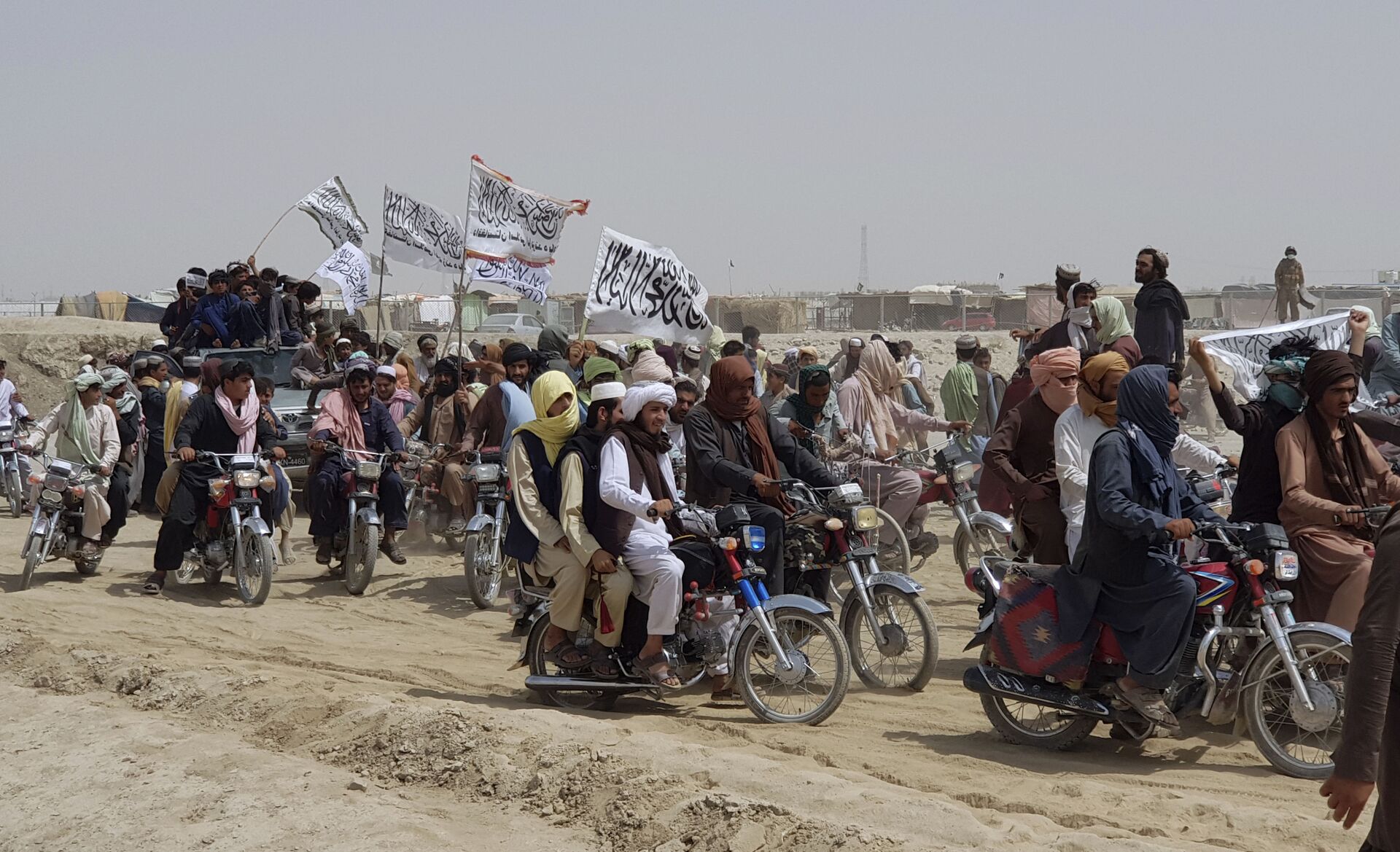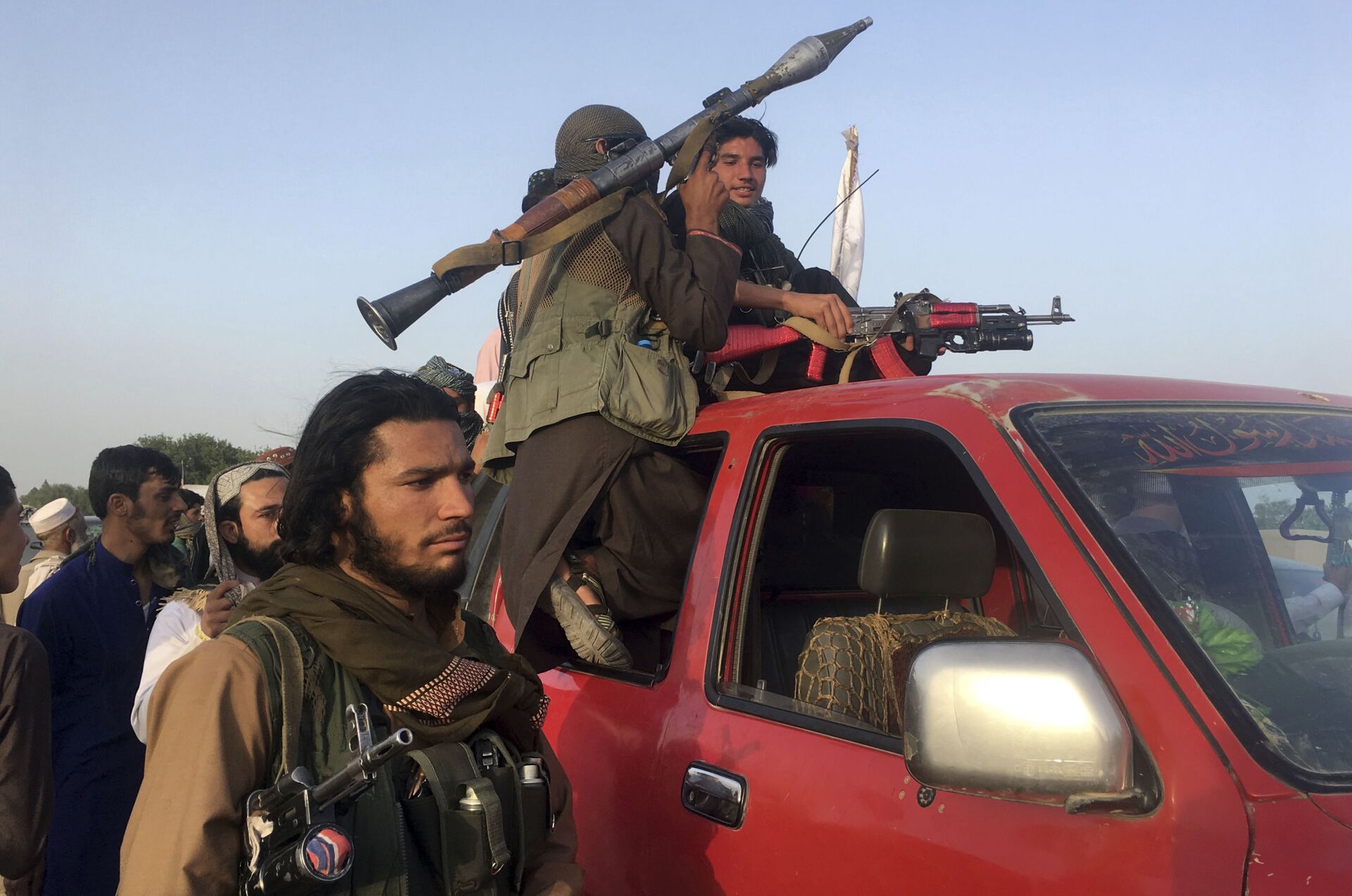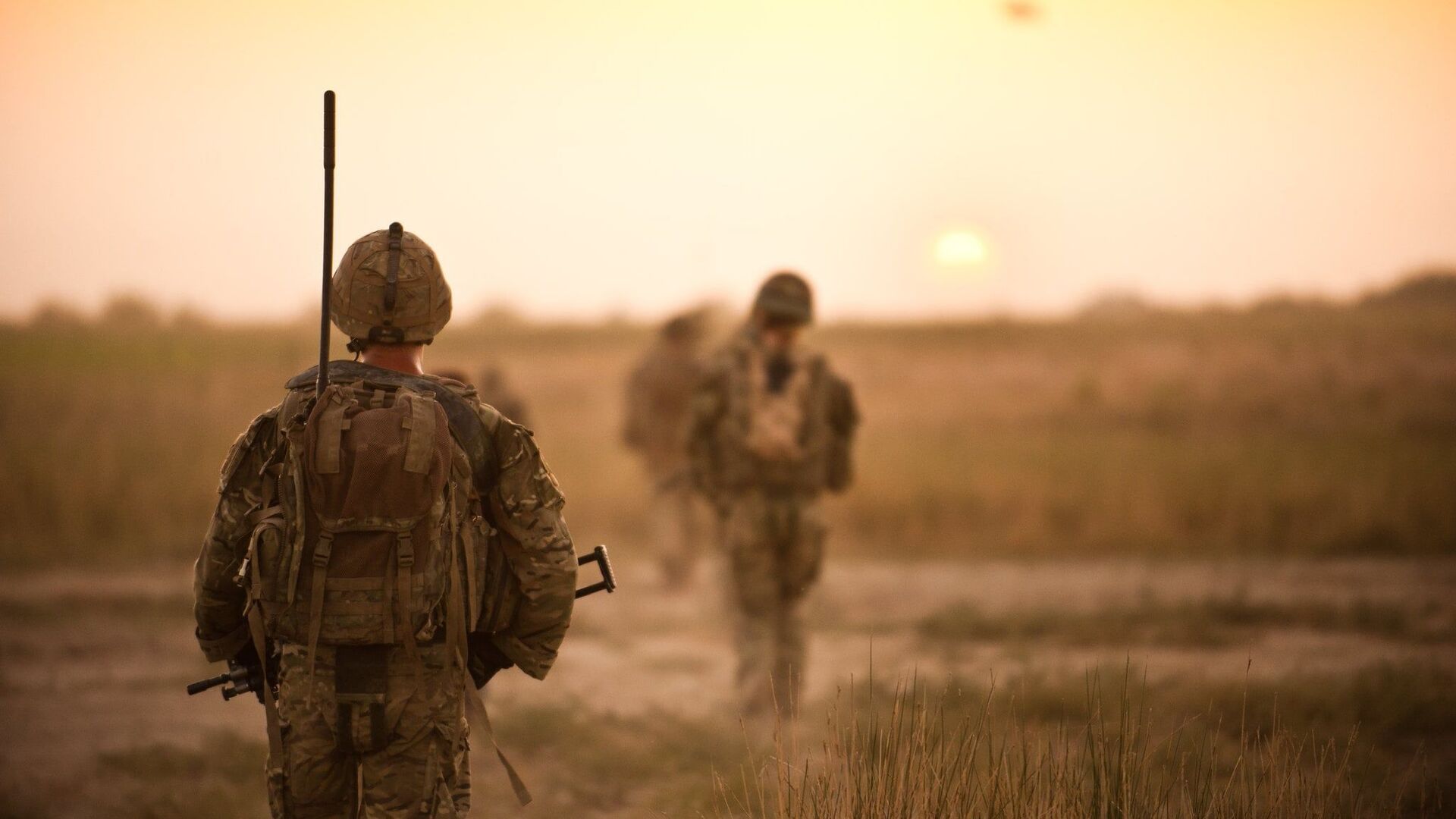UK Gov't Urged to Fast-Track Sanctuary for Afghans Who Supported British Troops or Face 'Dishonour'
05:39 GMT 28.07.2021 (Updated: 15:15 GMT 28.05.2023)
Subscribe
In May, Defence Secretary Ben Wallace announced plans to accelerate the Afghan Relocations and Assistance Policy, launched earlier this year, saying it was "only right" because those being relocated might "be at risk of reprisals" from the Taliban following the decisions by US and NATO forces to leave the country.
As the Taliban* continues its onslaught against the Kabul government in the wake of the ongoing US and NATO retreat from the country, the plight of those who served with UK troops is triggering growing concern.
Over 40 military commanders penned an open letter in The Times, addressed to UK Prime Minister Boris Johnson, calling on the government to speed up the relocation of interpreters and locals who did other jobs, such as driving and cooking, at British bases in Helmand province in Afghanistan.
They claim that the Afghan Relocations and Assistance Policy (ARAP) - a government scheme to bring Afghan workers to Britain, launched earlier this year – is failing to serve its purpose, with hundreds denied sanctuary in the UK.
“Time is of the utmost essence to save the lives of those who served alongside our servicemen and women in Afghanistan and who saved countless British lives. It is clear there is insufficient capacity for ARAP to cope with the scale and pace required,” reads the letter.
Signed by four former chiefs of the defence staff, Lord Boyce, Lord Stirrup, Lord Richards and Lord Houghton; two former heads of the British Army, Lord Wall and Lord Dannatt; Lord Ricketts, the former national security advisor, and former Defence Minister Johnny Mercer, who served as a soldier in Helmand, the missive warns the Prime Minister that Britain faces “dishonour” if those who served with UK troops are left to face possible death at the hands of the Taliban.

Supporters of the Taliban carry the Taliban's signature white flags in the Afghan-Pakistan border town of Chaman, Pakistan, Wednesday, July 14, 2021
© AP Photo / Tariq Achakzai
“If any of our former interpreters are murdered by the Taliban in the wake of our withdrawal, the dishonour would lay squarely at our nation's feet. ARAP is not providing the sanctuary that the British public have been led to believe is being granted to our former Afghan interpreters and colleagues,” continues the open letter.
‘Low Bar’ for Rejection
Over 500 cases, including those of at least 130 interpreters, have been rejected under the Afghan Relocations and Assistance Programme in the past three months, claim those who penned the letter.
“Too many of our former interpreters have unnecessarily and unreasonably been rejected from relocation to safety in the UK and we strongly urge that the policy is reviewed again immediately.”
Qualifying for relocation requires that interpreters prove they were in an “exposed” role by serving with foreign troops in the country that now puts them in “imminent danger”. However, due to a plethora of reasons, meeting all the criteria is often extremely challenging, with missing paperwork presenting yet another hurdle. Furthermore, the British embassy in Kabul, which manages the relocation programme, is short staffed. The process is, accordingly, mired in delays.
The retired military chiefs argue the criteria should be less strict.
According to the signatories of the letter, over 1,000 interpreters who had their service terminated (often due to some minor offence) face the likelihood their relocation applications will be rejected. Similar rejections are often faced by those who did not work in an “exposed” role or were sub-contracted rather than directly employed by the UK.
“… The current policy discriminates against the 35 per cent of staff dismissed from service for various reasons without any due process or ability to appeal their dismissal,” says the letter, coordinated by the Sulha Alliance, which campaigns for the former interpreters.
Currently, Britain is carrying out a relocation operation for around 3,500 Afghans, including 800 interpreters and their families, with what has been dubbed “Freedom Flights” arriving in the UK.
The present version of ARAP was introduced in April.
The present version of ARAP was introduced in April.
Back in May, Ben Wallace, the Defence Secretary, was cited by the BBC as underscoring that it was "only right" to accelerate the programme because those being relocated might "be at risk of reprisals" from the Taliban.
While earlier schemes had involved rigid criteria for successful application, such as length of service and their precise roles with British troops in Afghanistan, the revised policy stated any current or former locally employed staff deemed to be under serious threat would be offered priority relocation to Britain “regardless of their employment status, rank or role or length of time served”.
However, at the time campaigners such as Ed Aitken, a veteran Army officer and the founder of the Sulha Alliance campaign group, warned that there was still a "low bar" for rejecting people, more specifically, those who had been dismissed from their roles while working for the UK in Afghanistan.
American and coalition forces began the Afghan pullout in May, when US President Joe Biden promised to have all troops out of the country by September and the 20th anniversary of the 9/11 terror attacks. The latter had served as the pretext for the US invasion of Afghanistan in 2001.
Last month, the Pentagon said troops would be out by the end of August. Amid the escalating violence which has accompanied their withdrawal, the Pentagon has threatened to ramp up airstrikes against the Taliban if it continued its attacks against government forces.

Taliban fighters ride in their vehicle in Surkhroad district of Nangarhar province, east of Kabul, Afghanistan, Saturday, June 16, 2018
© AP Photo / Raumat Gul
The Taliban has claimed to have seized up to 85 percent of Afghanistan’s territory and up to 90 percent of border areas, with Kabul disputing these claims as “baseless propaganda”.
*The Taliban is a terrorist group outlawed in Russia and many other countries.




